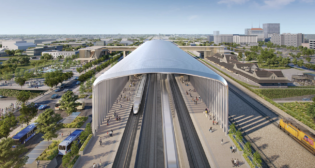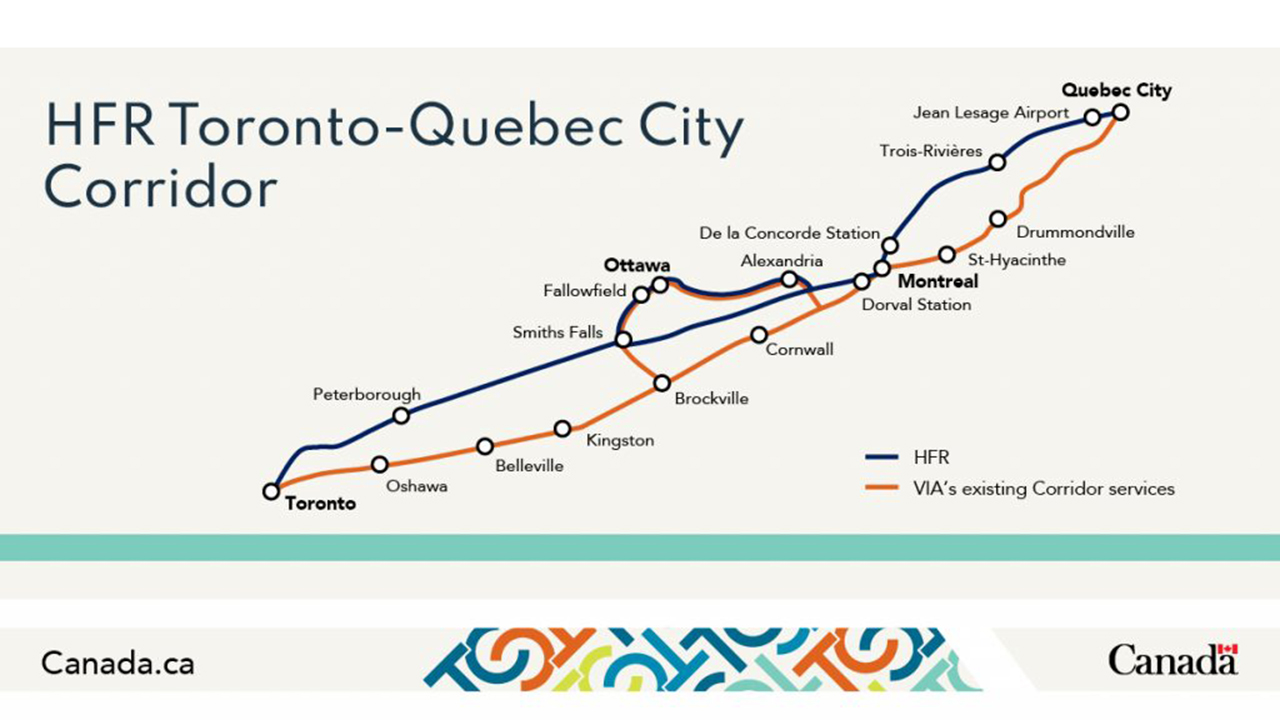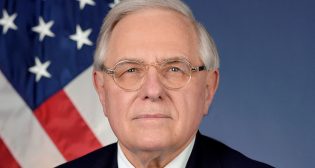
Transport Canada Launches RFP for HFR Project
Written by Carolina Worrell, Senior Editor
Transport Canada on Oct. 13 announced the official launch of the Request for Proposals (RFP) for the High Frequency Rail (HFR) project to the three selected consortiums invited to participate. Proposals are due in summer 2024.
Following a Request for Qualifications (RFQ), which was launched in February 2023 and closed on April 24, 2023, the Government of Canada evaluated four responses from Canadian and international consortiums, and selected in July the following three to advance to the RFP stage:
- Cadence (CDPQ Infra, AtkinsRéalis (formerly known as SNC-Lavalin), Systra Canada, Keolis Canada)
- Intercity Rail Developers (Intercity Development Partners, Kilmer Transportation, First Rail Holdings, Jacobs, Hatch, CIMA+, First Group, RATP Dev Canada, Renfe Operadora)
- QConnexiON Rail Partners (Fengate, John Laing, Bechtel, WSP Canada, Deutsche Bahn)
According to Transport Canada, the launch of the RFP “is a major step in the procurement process that consists of a series of milestones and selecting a private developer partner to design and develop the HFR project.”
The participating consortiums will have approximately nine months to develop their proposals. Following a three-month evaluation period, the selected consortium is expected to be announced in late fall 2024 and will work collaboratively with VIA HFR to design and develop the HFR project, a “transformational project that will fundamentally change the way Canadians travel in southern Québec and Ontario, notably for communities who will be newly served by passenger rail service such as Trois-Rivières and Peterborough.”
The entire procurement process is overseen by a Fairness Monitor, an independent consultant who acts as an objective, third-party observer, and monitors the procurement process to ensure that it is conducted in a fair manner, consistent with the process set out in the RFQ and RFP.
Following the RFP process, a private developer partner will be selected based on their demonstrated capacity to deliver the HFR project with the best value and benefits for Canadians, according to Transport Canada. They will be asked to present their analysis for two technically and commercially feasible solutions, along with a business plan and management plan for the co-development, construction, and operations phases of the project.
The first solution will have trains traveling faster than existing VIA Rail speeds at up to 200 kilometers per hour. Currently, VIA Rail trains can travel up to a maximum speed of 160 kilometers per hour, with operating speeds of 60-120 kilometers per hour, depending on the segment. The second solution will include high speed segments to achieve even shorter trip times.
This approach, Transport Canada says, will allow for a rigorous assessment of the benefits and costs of high-speed rail segments to determine whether and how they should be integrated into the HFR project.
The Government of Canada will also be looking for:
- How the solutions meet or exceed the project outcomes.
- Understanding of the project and its associated risks.
- Partnership and collaborative strategies for Indigenous Peoples; and readiness and capacity to proceed.
This strategy, Transport Canada says, “will drive respondents towards the maximization of project outcomes, while considering the cost-benefit trade-offs of alternatives for meeting or exceeding project outcomes.”
“The launch of the Request for Proposals for the High Frequency Rail project marks a significant milestone,” said Minister of Transport and Quebec Lieutenant Pablo Rodriguez. “In the future, more Canadians will choose to travel by rail, because the HFR will lead to faster train journeys, more frequent departures and greener travel. I look forward to seeing how the teams participating in this process will approach the challenge of connecting communities, honoring Indigenous Reconciliation, and improving travel in the Québec City to Toronto corridor.”
FURTHER READING:
Canada to Create Separate Railway for Corridor HFR
VIA HFR: How Viable? How Close?



